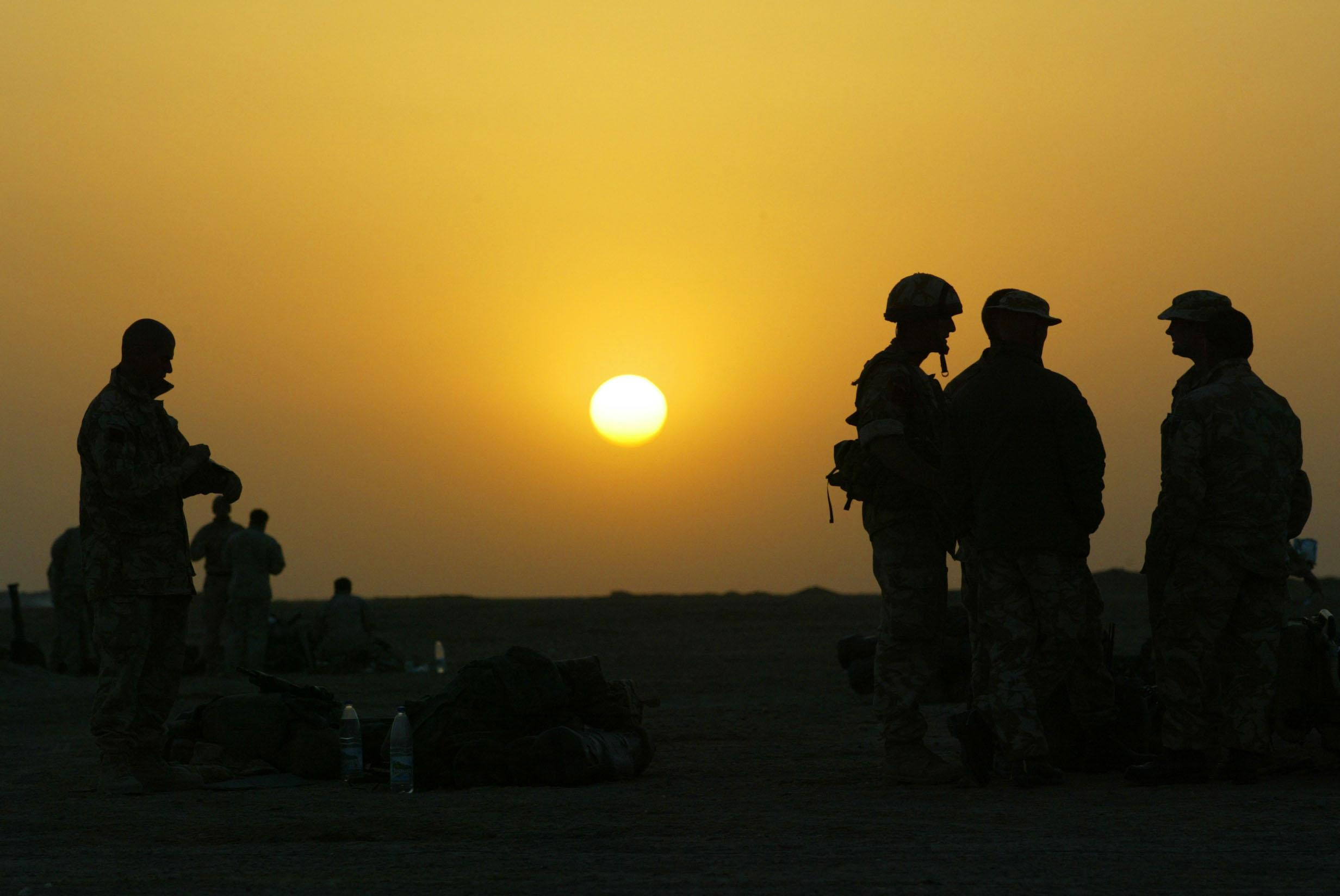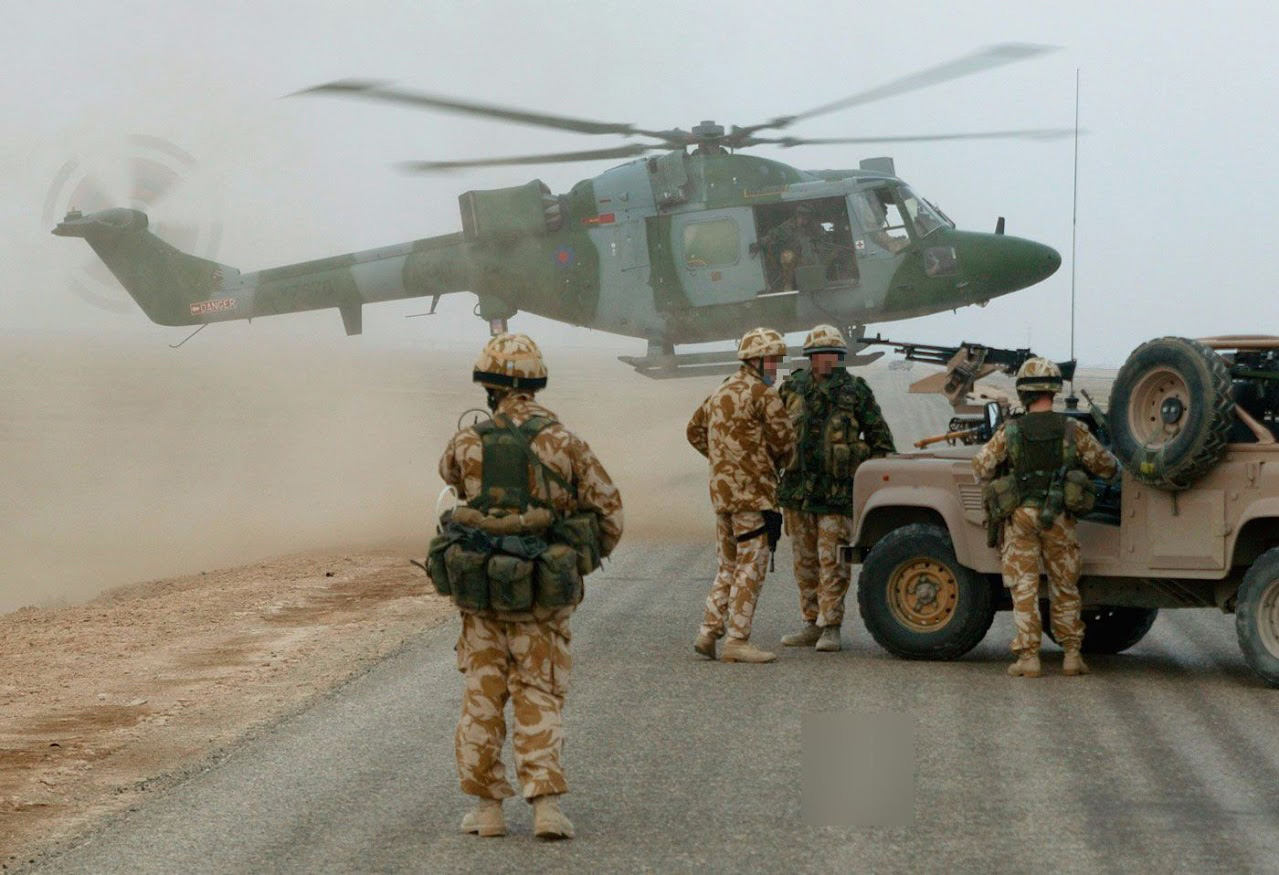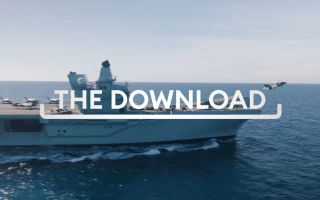
Iraq Veterans Share Wartime Letters Sent To Family 10 Years Ago

Iraq veterans have shared heartfelt letters exchanged during the war, as Britain marks 10 years since withdrawing its forces from the country.
Military airmail sent between soldiers based in Iraq and their loved ones were known as "blueys" due to their blue envelopes.
They were often a welcome bulletin of news, but for those who suffered major injuries in Iraq, the love and encouragement contained within them could be vital - even life-saving.
Corporal Simon Brown served in the Royal Electrical and Mechanical Engineers in Iraq when he sustained near-fatal facial injuries while trying to rescue six stranded colleagues in 2006.
He shared a bluey he had sent to his rescuer Corporal Warren Ward.
After waking from a 17-day induced coma with wounds that left him blind in one eye and with 20 per cent vision in the other, he wrote to Cpl Ward and thanked him for his "efforts in saving my life".
They reconnected 14 years later on a video call, where Cpl Ward, now 50, told Cpl Brown, now 42, how re-reading this letter stopped him from taking his own life after he suffered severe spinal injuries later in the war.
"When I was down, I was in that dark place and, no matter how hard I tried, I couldn't get out of it," Cpl Ward said.
"Everything almost got on top of me, so I got my letter out and I read it.
"In the first line, I'd start to get a lump in my throat and then halfway down I'd get a tear. Now I celebrate it."

Cpl Brown, now an ambassador with charity Help for Heroes as well as a coach for Leeds Rhinos in the Physical Disability Rugby League, intended his letter to motivate his soldiers to "keep going" even after he felt his "heart had been ripped out", having lost his sight.
He said he wants people to know that Iraq veterans are "still here".
"We may not be at war but military personnel are still getting hurt and will need support for 30 or 40 years from injuries attributable to service that happened in 30 to 40 seconds of chaos," he said.
Royal Military Police officer Mark Clougherty shared his "precious time capsule" of letters from his two young sons and wife.
Mr Clougherty has suffered from PTSD since a near-death experience when he was almost struck by a Challenger tank in the Kuwait desert, where he had been deployed to save three engineers taken hostage there in 2003.
He said that the Iraq War had been "all over the news" at the time, adding: "Although the boys were young, they knew I was in danger."
His son Cieran, then six, told him in one letter: "I can’t wait to go swimming and to McDonald's with you (and) also push Niamh in her pram… when you come back I am going to jump on you and race with you in the street… I really miss you."
Since the war, he has survived testicular cancer and, through sports recovery at Help for Heroes, he will be representing Team UK in the 2022 Invictus Games.
Royal Air Force airman Matt Neve also suffered from PTSD, but never showed his struggles in letters to his fiancee, Zoe.
His job as a Senior Aircraftsman involved transporting injured soldiers to hospitals, which took such a toll on his mental health that he attempted suicide.
Re-reading his letters 18 years later, Ms Neve said she wanted veterans to know that "it's OK to ask for help".
The couple now have two daughters and are ambassadors for Help for Heroes, which has supported Mr Neve's mental health recovery and selected him to compete as an archer in the Invictus Games in Toronto in 2017.
Cover image: British soldiers pictured during the Iraw War in 2003 (file photo) (Picture: PA).









